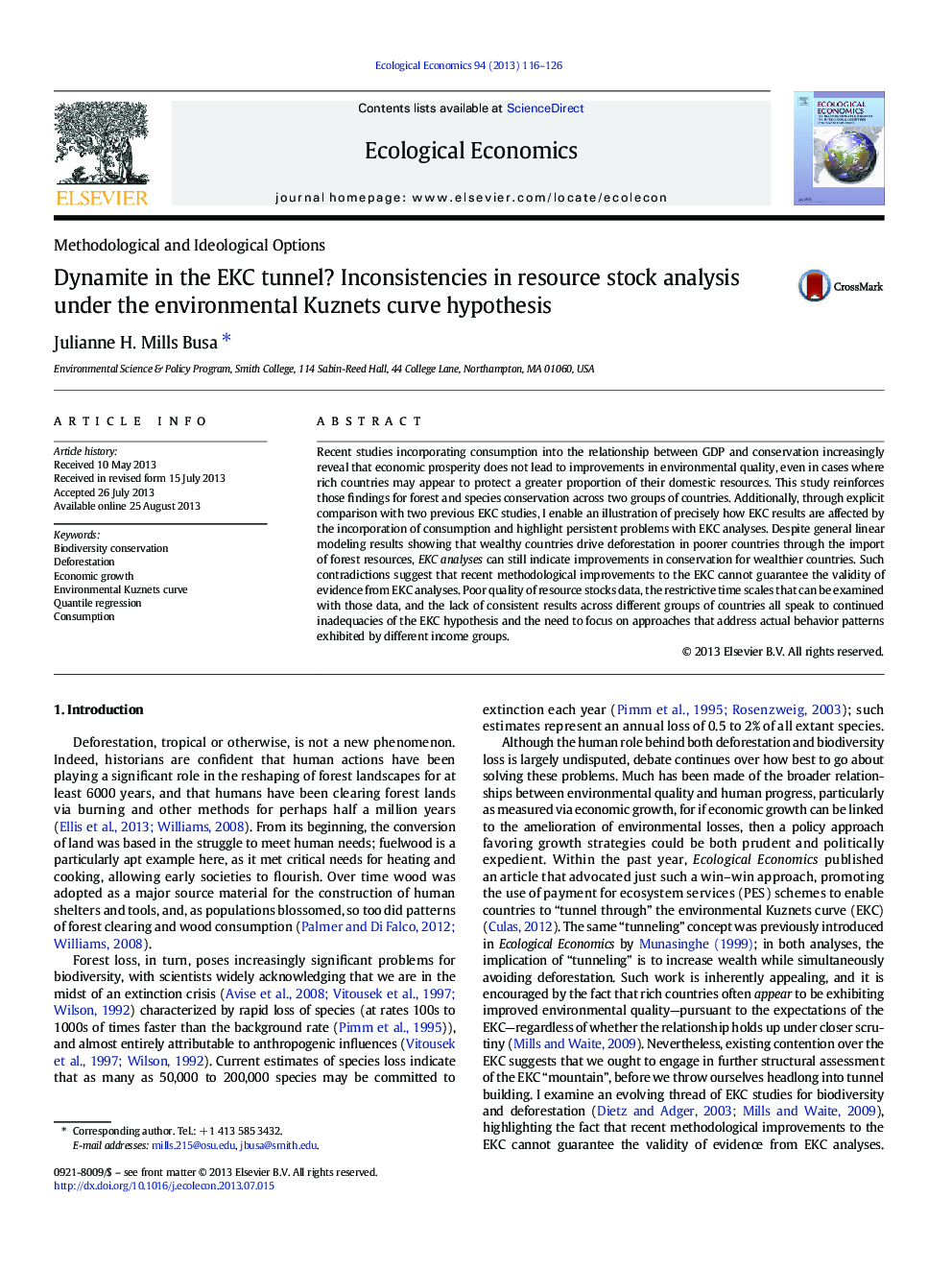| Article ID | Journal | Published Year | Pages | File Type |
|---|---|---|---|---|
| 5049862 | Ecological Economics | 2013 | 11 Pages |
â¢Wealthy countries drive deforestation in poorer countries via global trade.â¢Despite this, EKCs can still indicate improved conservation for wealthier countries.â¢Recent improvements to EKC methods cannot guarantee validity of EKC studies.â¢EKCs are biased by choice of countries, data quality, and mismatched time scales.â¢Focus should be on actual behavior patterns of different income groups, not the EKC.
Recent studies incorporating consumption into the relationship between GDP and conservation increasingly reveal that economic prosperity does not lead to improvements in environmental quality, even in cases where rich countries may appear to protect a greater proportion of their domestic resources. This study reinforces those findings for forest and species conservation across two groups of countries. Additionally, through explicit comparison with two previous EKC studies, I enable an illustration of precisely how EKC results are affected by the incorporation of consumption and highlight persistent problems with EKC analyses. Despite general linear modeling results showing that wealthy countries drive deforestation in poorer countries through the import of forest resources, EKC analyses can still indicate improvements in conservation for wealthier countries. Such contradictions suggest that recent methodological improvements to the EKC cannot guarantee the validity of evidence from EKC analyses. Poor quality of resource stocks data, the restrictive time scales that can be examined with those data, and the lack of consistent results across different groups of countries all speak to continued inadequacies of the EKC hypothesis and the need to focus on approaches that address actual behavior patterns exhibited by different income groups.
